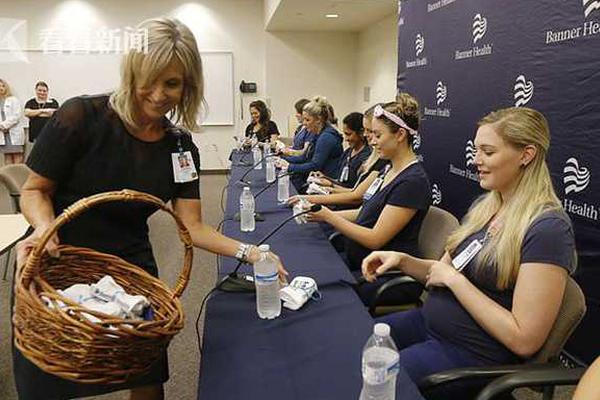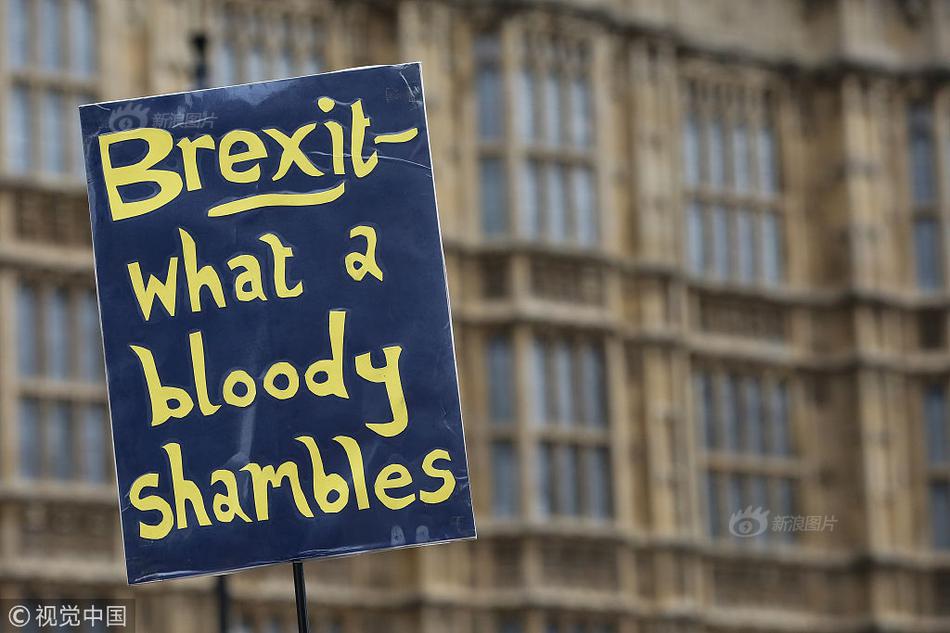Facebook CEO Mark Zuckerberg doesn't believe that fake newsKhis social network influenced the election.
But recent findings from the Pew Research Center suggest the opposite is true, as 20 percent of social media users say they've changed their stance on a political issue because of something they saw on sites like Facebook. The shift was usually pessimistic.
SEE ALSO: Facebook is the most powerful force online — and these new numbers prove it"People who said they had changed their minds on [the presidential] candidates often said that social media pointed their opinion in a more negative direction," Pew research associate Monica Anderson said in a post about the survey that was published Monday.
"Respondents who indicated they had changed their minds about Clinton were more than three times as likely to say that their opinion changed in a negative direction rather than a positive one (24% vs. 7%), and respondents who mentioned Trump were nearly five times as likely to say that their opinion became more negative as opposed to more positive (19% vs. 4%)," she added.
The findings are pulled from more extensive Pew research on politics and social media that was published last month. The surveys behind that research were completed earlier this year, long before Election Day, so it's impossible to state with any certainty that shifting opinions translated into political action.
Still, the anecdotes collected by Pew reinforce the logical notion that some people are impacted by the information they see online.
Here are a couple of the responses from Pew's survey-takers — 4,579 random U.S. adults who live in households and are representative of the national population:
"Trump continues to voice his opinion incredibly ignorantly about immigration and made my respect for him tank."
"All the videos circulating about Hillary Clinton and her email debauchery. Now I think she is even more evil and corrupt than originally thought."
"Videos of black people being murdered by police made me more angry and therefore more outspoken about Black Lives Matter."
"I saw some of my friends were animated about left-leaning things like Bernie Sanders and gay marriage. Originally I was against gay marriage and have now accepted it."
Note that none of the responses included in Pew's report indicate that the individuals surveyed had been exposed to — or swayed by — fake news reports. In fairness, that's somewhat beside the point: The question is fundamentally about whether people can be influenced by information they see on social media. If the answer is yes, then we should believe in the power of viral hoaxes when they spread on social media.
With varying margins of error, Pew's sample, at a 95 percent level of confidence, included 3,571 social media users, 3,163 of which were Facebook users. Of that population of social media users, 1,557 said they were Republican or Republican-leaning, while 1,929 were Democrats or leaning in that direction.
Self-identified liberal Democrats were most likely to say they'd changed their minds on a political or social issue because of something they saw on social media, at 25 percent overall. Thirteen percent of conservative Republicans said the same.
 Original image has been replaced. Credit: Mashable
Original image has been replaced. Credit: Mashable Do keep in mind that the overwhelming majority — 82 percent — of the individuals surveyed said they never changed their opinion of a candidate because of social media.
That said, the race for electoral votes was incredibly close in swing states this year, as we see via Google Trends:
 Original image has been replaced. Credit: Mashable
Original image has been replaced. Credit: Mashable Did information shared on Facebook, including hoaxes, make a difference in these states? Impossible to say — but let's not pretend the notion is absurd.
Topics Facebook Social Media Elections
 Best roborock deal: Save $400 on Q5 Pro+ Robot Vacuum and Mop
Best roborock deal: Save $400 on Q5 Pro+ Robot Vacuum and Mop
 Drone with umbrella covers you from above, but it's too noisy
Drone with umbrella covers you from above, but it's too noisy
 Resourceful dog owner finds the absolute best use for a label maker
Resourceful dog owner finds the absolute best use for a label maker
 Apple's next Animoji innovation is Memoji
Apple's next Animoji innovation is Memoji
 Draper vs. Arnaldi 2025 livestream: Watch Madrid Open for free
Draper vs. Arnaldi 2025 livestream: Watch Madrid Open for free
 Grindr, other dating apps are working to add STD notification features
Grindr, other dating apps are working to add STD notification features
 Microsoft confirms it will acquire code
Microsoft confirms it will acquire code
 Apple rumor: the cheaper new iPhone will be delayed until November
Apple rumor: the cheaper new iPhone will be delayed until November
 Against Fear
Against Fear
 Hari Kondabolu's 'Warn Your Relatives' is a detox from hate speech
Hari Kondabolu's 'Warn Your Relatives' is a detox from hate speech
 Shop the Google Pixel Pro 9 for $200 off at Amazon
Shop the Google Pixel Pro 9 for $200 off at Amazon
 iOS 12 wish list: What we're hoping Apple will announce at WWDC 2018
iOS 12 wish list: What we're hoping Apple will announce at WWDC 2018
 It’s time for Apple's next act of courage: Kill the MacBook keyboard
It’s time for Apple's next act of courage: Kill the MacBook keyboard
 Facebook finally kills its terrible Trending news section
Facebook finally kills its terrible Trending news section
 Operation Rock Wallaby rains food down on wildlife hurt by bushfires
Operation Rock Wallaby rains food down on wildlife hurt by bushfires
 Netflix burns 'Roseanne', recommends 'One Day at a Time' instead
Netflix burns 'Roseanne', recommends 'One Day at a Time' instead
 Geologists show why we still have no idea how to predict earthquakes
Geologists show why we still have no idea how to predict earthquakes
 What John Cusack has to say about a 'Say Anything...' sequel
What John Cusack has to say about a 'Say Anything...' sequel
 NYT mini crossword answers for April 24, 2025
NYT mini crossword answers for April 24, 2025
 Drone with umbrella covers you from above, but it's too noisy
Drone with umbrella covers you from above, but it's too noisy
Eyes Have It by Sadie SteinReading Through the Leaves by Amy Grace LoydSnail’s Pace by Sadie SteinSit and Cry with the Door Closed by Brian CullmanWordle today: Here's the answer and hints for July 17Borrowed Time by Michele FilgateApple's M3 Macs likely already on the way later this yearBonfire Night by Sadie SteinNew Spotify feature gives Calm content for freeEdgar Allan Ho, and Other News by Sadie SteinHow to take a mindful bathPersuasion by Sadie SteinConspiracy theorists think Joe Biden used a green screen to fake a recent appearance. (He did not.)O Canada by Sadie SteinSex education is missing yet another crucial topic. We need to fix that.With the Rushes by Sadie SteinWeapons of Mass Instruction by Sadie SteinOpenAI announces $5 million partnership to support local newsSex education is missing yet another crucial topic. We need to fix that.14 TikTok accounts to follow for fun STEM lessons Calm down. Here's what you actually need to know about the WikiLeaks dump Zayn accepted an award he didn't win, so iHeartRadio made up a new category for him Stephen Hawking reminds us technology will kill us all and it's all our fault WikiLeaks document dump alleges the CIA can hack almost everything Ed Sheeran reveals 'Love Yourself' could have been a NSFW Rihanna jam Google Pixel 2 might not have a headphone jack, report says See Darren Criss menace Grant Gustin and Melissa Benoist in 'The Flash' musical episode Watch this flock of birds form hauntingly beautiful patterns in the sky Everyone's favourite physicist has a far Trump still refuses to wear his tie correctly and tapes it down instead Emma Watson defends her 2014 comments about Beyoncé Edward Snowden weighs in on WikiLeaks CIA dump Russia finally approved 'Beauty and the Beast — but there's a caveat Need some medical advice? Try asking Alexa. U.S. House staff banned from using WhatsApp There's now a plaque to commemorate where Ian McKellen ate a potato Kareem Abdul What would animals say if tech let them talk? Nothing good, probably. The White House just plagiarized an ExxonMobil press release Harvard dropout to give Harvard commencement speech
2.0042s , 10133.0390625 kb
Copyright © 2025 Powered by 【4K】,Wisdom Convergence Information Network